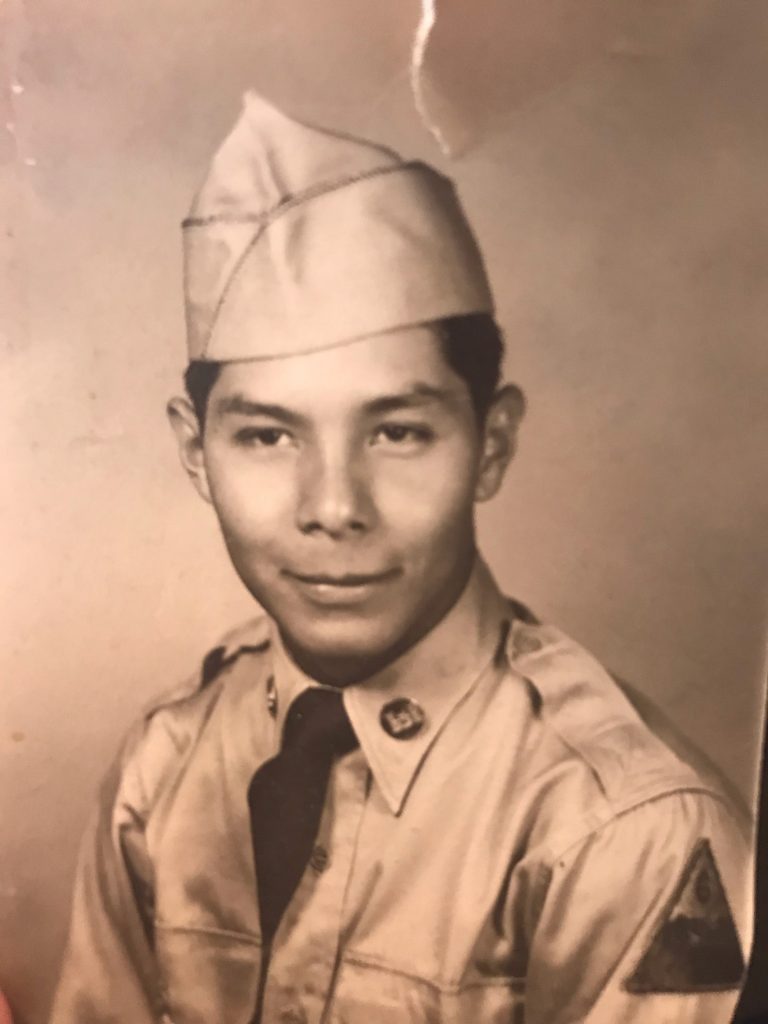A society so blind to difference.
People of a multitude of colors and cultures are so timorous.
Taught to follow a mold and not to break it.
I never knew I was dissimilar to the majority.
For I was surrounded by those alike that enjoyed me.
Living in America, a country of freedom and equality,
I never truly felt accepted, even in the U.S. Army.

You would expect during a war we would all be treated the same,
But that wasn’t the case.
I was viewed by others as simple-minded.
Unable to comprehend what the officers wanted.
Only having friends resembling me,
While
the others speak sly slurs to some degree.
Required to complete whatever duty the officers assign,
Never to question why we couldn’t be on the front lines.
Manipulation and mistreatment are customary.
Majors fabricating a job to drive trucks,
In hopes we would volunteer without any fuss.
I conclude from a friend they are tricking us.
Presuming that our kind are used to laborious tasks,
Since that would be our occupation outside of the war.
Assumptions make my soul feel sore.
For I am just like everyone else inside.
But they
see me as vermin and want me fried.
I stand my ground because I am proud,
For my culture is a part of me.
Only if this world could see me for who I truly am,
Then I wouldn’t be told by those I know to scram.
An interview I had with a great uncle, Faustino Barbosa, about his difference in race, compared to myself, inspired this interview. Faustino Barbosa, born in 1930, grew up in St. Joseph, MO his entire life, and faced discrimination. He grew up in a predominantly Hispanic neighborhood, so he felt at ease there. Certain restaurants still banned him, and workers would refuse to serve him because of his race. Faustino was always compared to dogs, rodents, or other dehumanizing terms. People wanted to get rid of him like a homeowner would want to get rid of mice in their home, with that home being America. America was Faustino’s home too, so he always persevered through the hate. In this poem, I discuss Faustino’s experience as a minority in the U.S. Army, during the Cold War.
I used the line “But they see me as vermin and want me fried” as a reference to a book I read, called Maus, by Art Spiegelman. In the graphic novel, the Germans viewed Vladek and other Jews as vermin. This anti-Semitic view is a reason the Nazis found it justifiable to burn millions of Jews in crematories in concentration camps, from which Vladek remembered seeing and smelling the smoke. This related to Faustino because most white people saw him for his race and assumed he was useless and a nuisance, like a vermin. I used “Majors fabricating a job to drive trucks in hopes we would volunteer without any fuss” because Faustino experienced this specific incident while he was in the military. The majors were deceiving the Hispanics by fabricating a job that involved driving trucks but instead forced them to push giant wheel barrels. Also, Jews faced extreme manipulation when the Germans hauled them off to “camps.”
I relate to Faustino wanting others to see the real you, but I never was stereotyped for my race, since I am white. Faustino faced struggles I would never dream of facing because he is a different race than I am. My interview partner never saw himself as different and wanted others to see who he truly was. So, to portray that message I included the part about Faustino being proud of his culture and wanting people to know who he was as a person, not for the color of his skin.
